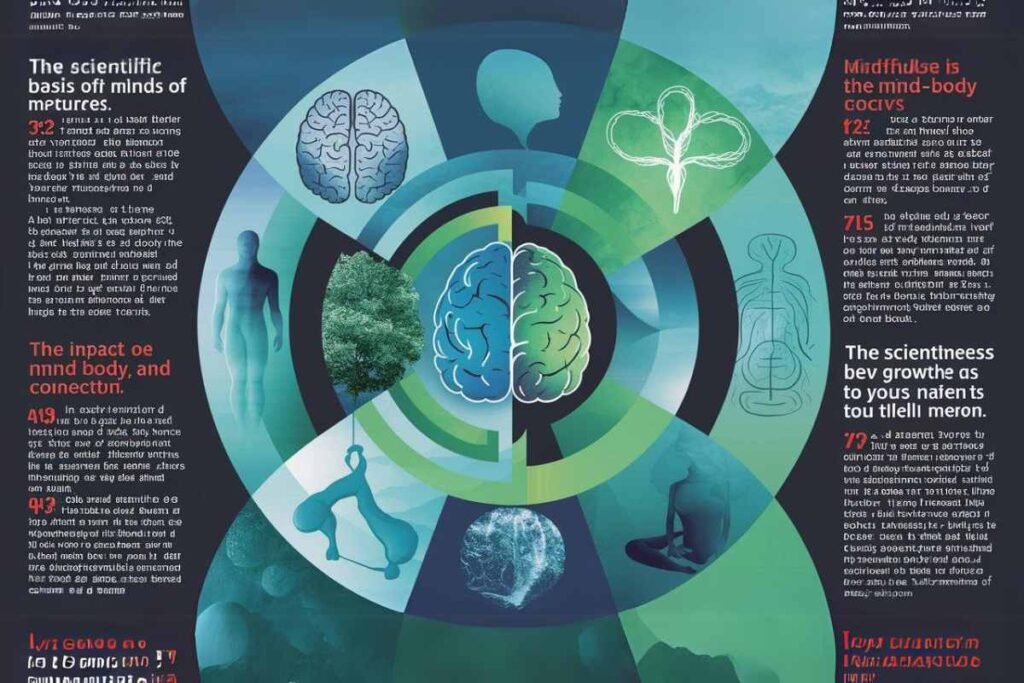Table of Contents
In today’s fast-paced world, finding a sense of inner peace can often feel like chasing a mirage amidst the hustle and bustle of daily life.
It’s in this modern context that Aleve mente emerges as more than just a buzzword—it represents a profound journey towards mindfulness and tranquility.
This article delves into the essence, principles, and transformative power of Alevemente, exploring its origins, practical applications, and the scientific basis of mindfulness in fostering overall well-being.
Introduction to Alevemente
In recent years, the quest for inner peace and holistic well-being has led to the rise of various mindfulness practices.
Among these, Alevemente stands out for its integration of ancient wisdom with modern understandings of mindfulness.
Derived from the Spanish words “alevoso” (treacherous or deceitful) and “mente” (mind), Aleve mente initially presents a paradoxical combination that ultimately aims to elevate the mind and spirit towards a higher state of awareness and peace.
Defining Alevemente: Beyond a Concept

Transcends being a mere concept; it embodies a lifestyle commitment to achieving inner peace through mindfulness.
At its core, Alevemente encourages individuals to embrace simplicity, practice presence in every moment, and cultivate compassion towards oneself and others.
This holistic approach resonates deeply in today’s society, where stress and anxiety often dominate daily experiences.
Origins and Meaning of Alevemente
The term Aleve mente finds its roots in mindfulness meditation practices, yoga, and other holistic traditions that emphasize the importance of being present and mindful.
It signifies a journey towards self-discovery and inner peace, advocating for a mindful awareness of one’s thoughts, emotions, and surroundings. By understanding its origins, practitioners can better grasp its transformative potential in everyday life.
The Importance of Mindfulness
In a world characterized by constant distractions and information overload, mindfulness emerges as a powerful tool for reconnecting with oneself and reducing stress.
Mindfulness practices such as meditation, deep breathing exercises, and body scan techniques enable individuals to anchor themselves in the present moment, fostering a sense of calm and clarity amidst life’s challenges.
Scientific Basis of Mindfulness: Understanding the Mind-Body Connection

Recent scientific studies have shed light on the tangible benefits of mindfulness on brain function and overall well-being.
Research indicates that regular mindfulness practice can lead to structural changes in the brain, such as increased cortical thickness in areas associated with emotional regulation and decreased activity in the amygdala, the brain’s center for processing fear and stress responses.
Benefits of Practicing Alevemente
Practicing Aleve mente and mindfulness techniques not only enhances emotional resilience and cognitive function but also contributes to better physical health.
Studies show that mindfulness can alleviate symptoms of anxiety, depression, and chronic pain while improving sleep quality and immune function.
These holistic benefits underscore the importance of integrating mindfulness into daily routines for long-term well-being.
Practical Applications of Alevemente
Integrating Aleve mente into daily life involves adopting mindfulness practices that promote self-awareness and inner peace.
Techniques such as mindful eating, where individuals focus on the sensory experience of eating without judgment, and mindful walking, which involves paying attention to each step and the surrounding environment, offer practical ways to cultivate mindfulness in everyday activities.
Advanced Practices in Alevemente
Beyond basic mindfulness techniques, advanced practices like loving-kindness meditation and gratitude exercises deepen one’s connection to oneself and others.
Loving-kindness meditation involves sending positive thoughts and well-wishes to oneself and others, promoting compassion and empathy.
Similarly, gratitude practices encourage individuals to reflect on and appreciate the positive aspects of their lives, fostering a mindset of abundance and contentment.
Overcoming Challenges in Practicing Alevemente
While the benefits of Alevemente are clear, integrating mindfulness into daily life can present challenges such as a wandering mind and difficulty maintaining consistency.
Overcoming these obstacles requires patience, persistence, and a non-judgmental attitude towards oneself.
Setting realistic goals, establishing a regular mindfulness routine, and seeking support from mindfulness communities can help individuals stay committed to their practice.
Mindfulness in the Modern World: Balancing Technology and Well-being

In today’s digitally connected world, finding a balance between technology use and mindfulness practices is essential for overall well-being.
Setting boundaries for screen time, practicing digital detoxes, and using technology mindfully to access beneficial content can help individuals maintain focus and presence in their daily lives.
Mindfulness in the workplace also plays a crucial role in enhancing productivity, creativity, and job satisfaction among employees.
Conclusion
In conclusion, Alevemente offers a profound pathway to inner peace and holistic well-being through the practice of mindfulness.
Rooted in ancient wisdom yet resonant in today’s fast-paced society, Aleve mente encourages individuals to embark on a journey of self-discovery and transformation.
By embracing its principles of simplicity, presence, and compassion, practitioners can cultivate a deeper connection with themselves and others, navigating life’s challenges with clarity and resilience.
As scientific research continues to validate the benefits of mindfulness on mental, emotional, and physical health, integrating Alevemente into daily life emerges not only as a personal choice but as a necessary step towards achieving balance and fulfillment in an increasingly interconnected and demanding world.
Whether through mindful practices in daily routines, advanced techniques like loving-kindness meditation, or navigating the complexities of modern technology with mindfulness, Alevemente serves as a guiding light towards a more mindful, peaceful existence.
FAQs
What is Alevemente?
Alevemente blends ancient wisdom with modern mindfulness practices, emphasizing simplicity, presence, and compassion to foster inner peace and well-being.
How does Aleve mente differ from traditional mindfulness?
Aleve mente integrates the Spanish roots “alevoso” (treacherous) and “mente” (mind), offering a unique perspective that encourages a deeper exploration of one’s inner world and emotions.
What are the benefits of practicing Alevemente?
Practicing Alevemente enhances emotional resilience, improves cognitive function, reduces stress, and contributes to better physical health, including improved sleep quality and immune function.
How can I incorporate Aleve mente into my daily life?
Start by practicing mindfulness techniques like meditation, mindful eating, and mindful walking. These practices help cultivate awareness and presence in everyday activities.
What scientific evidence supports the effectiveness of mindfulness?
Scientific studies demonstrate that regular mindfulness practice can lead to structural changes in the brain, improving areas responsible for emotional regulation and reducing stress responses.
What are advanced practices within Aleve mente?
Advanced practices include loving-kindness meditation, which fosters compassion towards oneself and others, and gratitude exercises that cultivate a positive mindset and appreciation for life.
What challenges might I face in practicing Aleve mente?
Common challenges include a wandering mind and difficulty maintaining consistency. Overcoming these obstacles requires patience, persistence, and setting realistic goals.
How can mindfulness help in the modern digital age?
Mindfulness helps individuals find balance amidst digital distractions by promoting mindful technology use, setting boundaries for screen time, and practicing digital detoxes to enhance focus and well-being.


